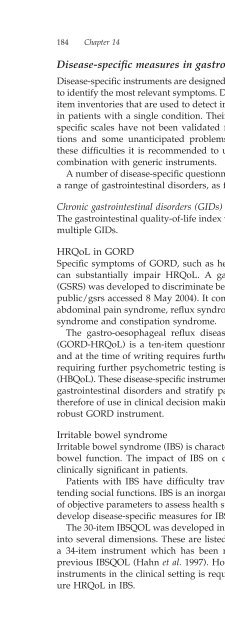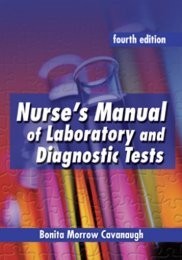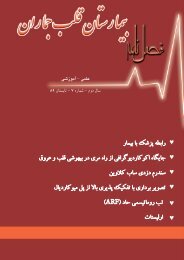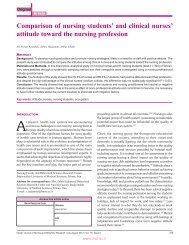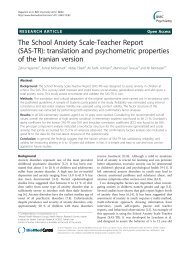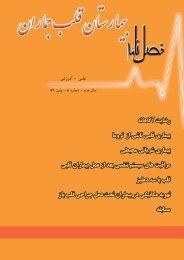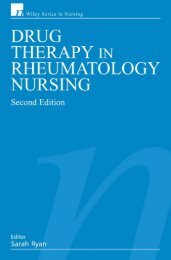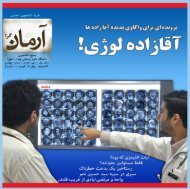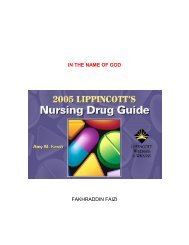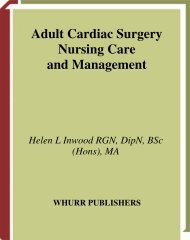Gastrointestinal Nursing.pdf
Gastrointestinal Nursing.pdf
Gastrointestinal Nursing.pdf
You also want an ePaper? Increase the reach of your titles
YUMPU automatically turns print PDFs into web optimized ePapers that Google loves.
184 Chapter 14Disease-specific measures in gastroenterologyDisease-specific instruments are designed for patients with a particular disease,to identify the most relevant symptoms. Disease-specific tools are usually multiiteminventories that are used to detect important treatment effects or changesin patients with a single condition. Their major disadvantage is that diseasespecificscales have not been validated for all known gastrointestinal conditionsand some unanticipated problems may be overlooked. To overcomethese difficulties it is recommended to use disease-specific questionnaires incombination with generic instruments.A number of disease-specific questionnaires have been developed to addressa range of gastrointestinal disorders, as follows.Chronic gastrointestinal disorders (GIDs)The gastrointestinal quality-of-life index was developed to measure HRQoL inmultiple GIDs.HRQoL in GORDSpecific symptoms of GORD, such as heartburn, regurgitation or chest pain,can substantially impair HRQoL. A gastrointestinal symptom rating scale(GSRS) was developed to discriminate between several GIDs (www.qolid.org/public/gsrs accessed 8 May 2004). It contains 15 items and has five domains:abdominal pain syndrome, reflux syndrome, indigestion syndrome, diarrhoeasyndrome and constipation syndrome.The gastro-oesophageal reflux disease health-related quality-of-life scale(GORD-HRQoL) is a ten-item questionnaire developed for surgical patientsand at the time of writing requires further assessment. Another questionnairerequiring further psychometric testing is the 12-item heartburn quality of life(HBQoL). These disease-specific instruments can discriminate GORD from othergastrointestinal disorders and stratify patients by symptom severity and aretherefore of use in clinical decision making. The GSRS would appear the mostrobust GORD instrument.Irritable bowel syndromeIrritable bowel syndrome (IBS) is characterised by abdominal pain and alteredbowel function. The impact of IBS on quality of life has been shown to beclinically significant in patients.Patients with IBS have difficulty travelling, participating in sport and attendingsocial functions. IBS is an inorganic condition (see Chapter 6) and lackof objective parameters to assess health status has prompted several groups todevelop disease-specific measures for IBS.The 30-item IBSQOL was developed in North America in 1997. It is summedinto several dimensions. These are listed in Box 14.2. The current IBSQOL isa 34-item instrument which has been more extensively validated than theprevious IBSQOL (Hahn et al. 1997). However, further experience with theseinstruments in the clinical setting is required to determine how best to measureHRQoL in IBS.


